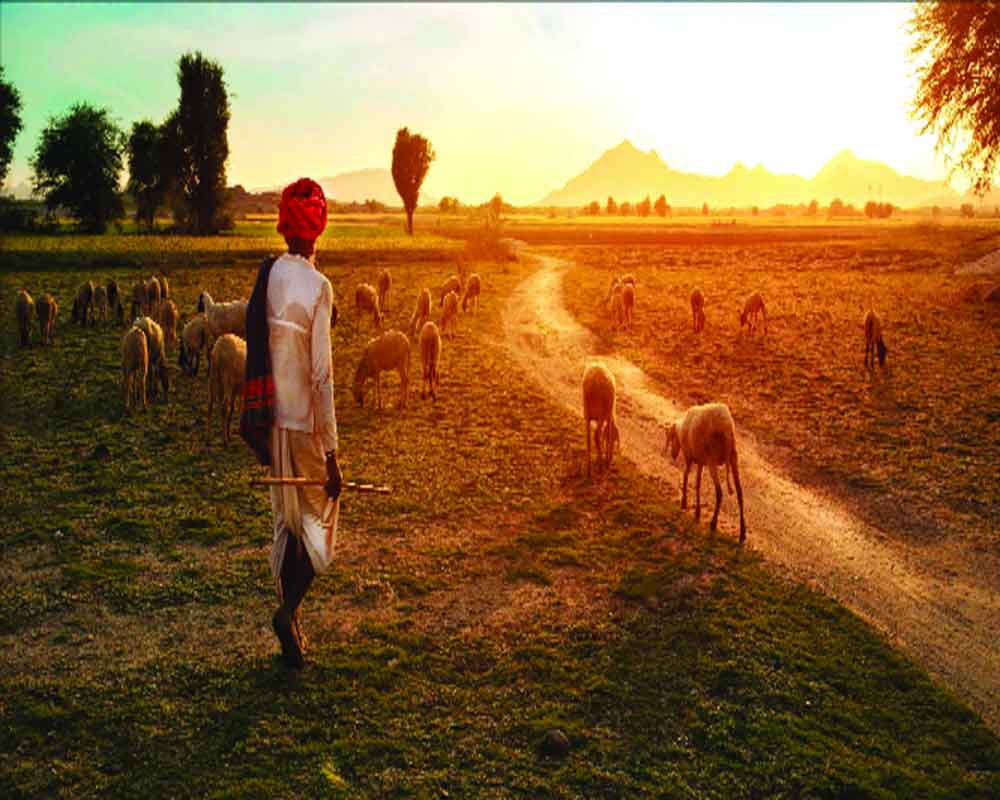Loyara village serves as a microcosm of resilience and progress, fuelled by education and community empowerment
We typically receive our ration between the 1st and 3rd of each month. If it’s ever delayed, my grandchildren inquire why we haven’t received it from the ration dealer. The younger generation in my household is quite aware. They’ve made sure that all the necessary ration-related documents are in order, ensuring a seamless supply. Also, my pension now arrives punctually. Thanks to various Government schemes, these youngsters are reaping benefits. They educate themselves about these schemes and then proactively apply for them at the Panchayat office,” shares 76-year-old Amba Bai, residing in Loyara village within Udaipur district, Rajasthan.
Situated just 8 km from Udaipur, this village falls within the Badgaon tehsil. With a population of approximately 2500, the majority belong to the Scheduled Tribe community. Alongside the OBC Dangi community, there are various other castes. The village reflects the influence of its proximity to Udaipur city, evident in the transition of most houses to concrete structures. However, economically, the village still grapples with challenges. While individuals from OBC and general castes are involved in agriculture, trade, and animal husbandry, the majority of male members from the Scheduled Tribes work as labourers in marble factories surrounding Udaipur city. Some also engage in daily wage labour. Meanwhile, women in these households contribute to the family’s income by working as domestic helpers in affluent homes within the city.
Economically, Loyara village may face challenges, but socially and educationally, it has seen significant development. Consequently, awareness about Government schemes has risen among the villagers, leading to increased benefits. The younger generation in the village has embraced education, with even Scheduled Tribe boys and girls pursuing studies up to the 12th grade. This educational advancement has also fostered greater awareness within the community. For instance, the Public Distribution System (PDS), part of the Food Security scheme, has been embraced in the village. Shiv Lal, aged 45, attests to this positive change. Despite working in a marble factory in Bengaluru after completing his 12th grade, he remains well-informed about Government schemes benefiting his family and the village. He recalls, “In the past, the ration dealer would often deny us ration with flimsy excuses. But now, thanks to education and awareness, such actions are no longer tolerated. Whenever we face ration shortages, we raise our concerns and seek information from the Panchayat office. Even in my absence, my children handle these matters diligently, ensuring the timely arrival of our ration.”
Taru Bai, a respected elder at 70, sheds light on the changing face of education and Government support in Loyara village. “Back in my day, girls rarely pursued education,” she recalls. “But now, over half of the girls in our community are completing high school, and they’re bringing back valuable information about Government programs. Their schooling has even helped smooth out the process for my pension, as they handle all the paperwork.”
Looking back, Taru Bai remembers, “We used to hear about Government schemes, but getting clear information was a challenge, even after asking around at the Panchayat. But things are different now; the younger generation knows exactly how to navigate these programs and fill out the necessary forms.”
However, amidst these educational strides, economic challenges persist. “The majority of the Scheduled Tribe families in the village are economically very weak. Most families do not have enough money to start a business, nor do they have enough land to do farming or vegetable production. Although the new generation has started studying, only a few people from this community are in Government jobs. But I think as the trend of education and awareness has increased among children, they will also soon start getting recruited in Government jobs.”
In the same village, there is also the family of Mangi Lal and Tulsiram, who are deprived of the benefits of the PDS. Last year, the ration status of Mangi Lal’s family which consists of seven members, was changed from BPL to APL. As a result, they stopped receiving ration. Similarly, Tulsiram mentions that due to missing documents, their family is unable to access ration benefits. For this, they’ve been in constant communication with the e-Mitra.
(The author is a social worker from Rajasthan; views are personal)


























